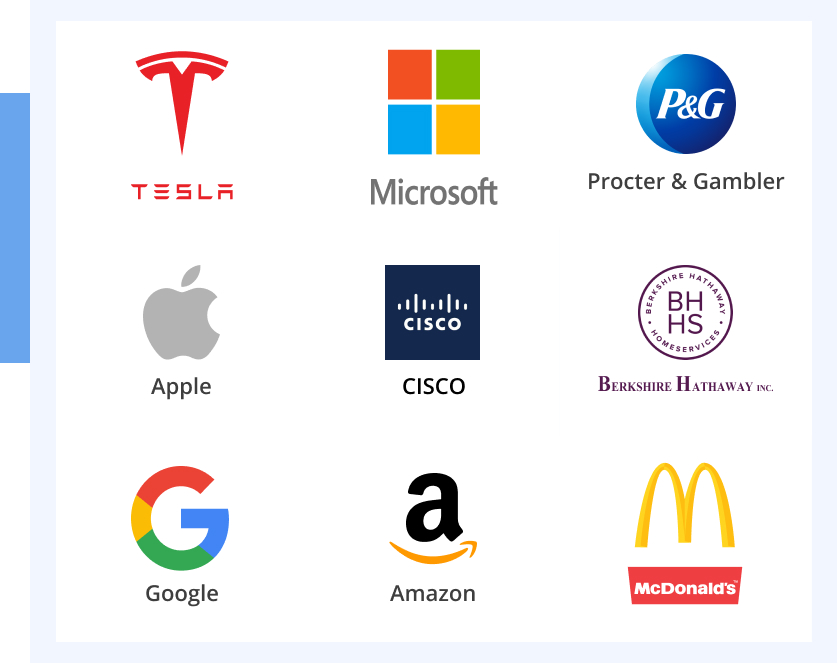- What is brand reputation?
Your brand’s reputation is how others feel about your brand—and those others can be anyone from potential or existing customers, partners, vendors, the media, stakeholders, shareholders, and the public at large. Every aspect of your business can have an impact on your brand reputation, including:
- Your customer service, from your in-store experience to your call center and how easy it is for customers to return products or share feedback on a service.
- The quality of your goods or services.
- The professional (and personal) life of any member of your team, especially your CEO, and other key leaders.
- The causes and nonprofit organizations you support.
- What your business publishes on social media and web.
- Content shared publicly about or referencing your company, including unfavorable press and client reviews that may or may not be true.
Following the COVID-19 pandemic, your brand reputation is more vulnerable than ever. In our increasingly interconnected global society—where a single tweet or social media post can be amplified through a viral hashtag and become front-page news in a matter of hours—companies must understand the importance of maintaining a positive brand reputation.
It can take years to grow a solid customer base and a trustworthy business reputation—but only moments to watch that reputation crumble. And rebuilding a brand reputation is even more difficult than building it from scratch because you’re trying to dig out from a negative position rather than starting the process from zero.
- What do reputation management companies do?
Stated simply, professional reputation management companies focus on creating a favorable online presence that best represents the good will, trust and relationship capital you have offline accurately on the internet. This likely includes publishing and ranking positive news and existing digital assets, while also downplaying the negative search results where required. This is accomplished by applying a keen understanding of the factors that search engines—specifically Google—use to rank the most relevant and high-quality information. Achieving results requires a flexible process for continuous optimization of your brand’s content on search engine results pages (SERPs). Reputation management companies use many strategies, including:
Search Engine Optimization (SEO): The ongoing process for raking content on specific keywords that define your business, including your name and goods or services you provide.
Content development: Content is still king, and it’s essential that you regularly feature quality, relevant content on both websites that you own and in earned media.
Social media management/monitoring: Even if you aren’t active on every social media channel, it’s crucial that you own your social media profiles to avoid confusion and monitor what others are saying about your business on these platforms.
Negative results: If there are negative search results about your business, a reputation management firm can help develop strategies that promote positive content for counteracting what is harmful or defamatory
- How do you protect your brand reputation?
Your brand reputation is one of the most valuable—if not the most valuable—elements of your business—which is why it’s surprising that so many companies decide to risk their brand reputation, leaving themselves completely vulnerable to crisis.
The first step to protecting your brand reputation is monitoring what is being said about your company online. The name of the game here is breadth, so we recommend that you monitor at least the following for your company, key employees and primary competitors:
- Google search results
- Google news results
- Google image results
- Social media results (Facebook, Twitter, Instagram, TikTok, Pinterest, Snapchat, etc.)
- Review sites (Google, industry-specific review sites like Yelp, TripAdvisor, G2Crowd, Avvo etc.)
There are several viable free and paid tools to help automate some or all of the monitoring process. Even then, the reporting received requires human interaction for understanding the initial input, interpreting results and determining the most appropriate course of action. And how often should you review monitoring results? Crisis communications case studies would suggest daily—to be able to see potential issues brewing before they turned into large problems or heated conversations—but this may not be practical for most busy companies, with research showing that many review quarterly at most.
Instead, savvy businesses prefer to entrust their most valuable business asset to a professional reputation management firm. A reputation management firm keeps intelligent eyes on the pulse of your online reputation with diligent monitoring, communication and optimization.
- Can reputation be managed?
Team members at your company cannot always successfully manage or control what others say about your business—so if there is a negative review, an erroneous Facebook post, or an unflattering blog, you may want to consider a reputation management company with experience in a wide range of situations, including how to effectively contact the author or publishing website to request the removal and deindexing of a particular link. Naturally, there are many considerations that dictate which solutions may be the right fit.
In some situations, the best way to deal with negative search results is to promote positive results about your business—things like case study blog posts, numerous positive reviews, testimonial-driven social media posts, and other types of media to highlight your success or expertise. Your reputation management firm will work with you to develop a strategy and supporting content to counter the negative and defamatory results. Ensure that the team you engage continuously optimizes the positive content and tweaks the initial plan when results materialize.
- How do you fix a bad business reputation?
Fixing a business’ reputation is a multi-step process that you must be willing to tackle with humility and determination.
The first step is figuring out what went wrong—what was the specific source of the issue? Was this a long-term issue with the slipping quality of your products or an acute problem with an inappropriate or controversial comment by your CEO?
- Next, publicly acknowledge what happened and what you are doing to fix it. Apologize openly on social media. Use all of the channels available to you—your website, social media, press releases and advertising to amplify the message that you’re making this change.
- Ensure that, in your statements, you’re putting your customer and their needs first. People’s natural inclination is to wonder, “What’s in it for me” and they will be even more suspicious if you’ve recently stumbled. Ensure that communication is genuine and your focus is in the right place.
- Follow through on your commitment. Prove to your customers that you’ve fixed the problem and you’re serious about resolving it. For example, if the problem was product quality, reach out with post-purchase quality surveys to document your progress; if the problem was an insensitive public remark by your CEO, highlight positive press and build an educational campaign around a new initiative or social impact.
- Get in front of the next issue. Open up communication lines with your customers and your employees to identify potential problems before they cascade into crises.
Fixing a bad business reputation can feel overwhelming. Your dedicated reputation management firm will help guide you through the process of rehabilitating your business reputation.
- What does brand reputation management mean?
Brand reputation management is one of the most important and foundational aspects of your business strategy. Chances are, your business is either neglecting it or doing it wrong. If so, it does so at its peril, in terms of both profits and its future.
- Are Reputation Management Services only Permissible to Brands?
No, Reputation Management services are not only permissible to brands but also extend to personal reputation. Personal reputation becomes extremely important if one works at high profile field like lawyers. In such cases, Reputation management companies provide services which include brand reputation management as well as personal reputation for lawyers or related fields.
A positive reputation is a valuable asset. You deserve to be in control of what the internet says about you or your brand. We specialize in building, monitoring, and protecting digital reputations. Schedule time with our team to audit your existing digital presence and find ways to elevate and enhance your online impression.



























